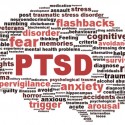Teens Who Drink Are at Greater Risk for Alcoholism
Starting at Age 15 Increases Risk Six Times over Waiting Until 21
State Office of Alcoholism and Substance Abuse Services (OASAS) Commissioner Karen M. Carpenter-Palumbo today recognized Alcohol Awareness Month calling on parents to help prevent underage drinking by learning the facts about alcohol and how they can take action to stop the early onset of alcoholism.
Governor David A. Paterson said, “Underage drinking is illegal, dangerous, and may even pose life-threatening consequences. I encourage all parents and community leaders across the state to work together to help youth make healthy choices in life.”
“Teens who start drinking alcohol at a younger age are at a much greater risk for developing an alcohol problem as an adult, said Commissioner Carpenter-Palumbo. “Parents remain the No. 1 influence in their child’s life. By knowing the facts about alcohol, setting clear “no-use” rules, establishing an open and honest relationship, and communicating to their child, they can help teens make the right decision not to drink and prevent alcoholism from developing.”

Alcoholism in teenagers needs to stop!
Alcohol is still the dominant drug problem for youth. According to the OASAS 2008 Youth Development Survey of 92,000 students, children start drinking alcohol as early as 13 years old – one third of youth have tried alcohol (more than a sip or two). In addition, half of high school seniors admitted to drinking alcohol in the past 30 days, and 31 percent of seniors reported at least one episode of binge drinking during the past two weeks (consumption of five or more drinks at one time).
There are numerous reasons why teens experiment with alcohol. Alcohol and the promotion of this drug is prevalent in our society. Most young people are exposed to hundreds of alcohol advertisements, images and media messages by the time they are teenagers. Alcohol use in the media is frequently portrayed as fun, sexy and the “grown-up” thing to do. Permissive parental attitudes surrounding underage drinking, community availability and norms favorable towards underage use all contribute to teenage experimentation.
It is a fact that adolescents are affected by alcohol differently than adults. According to the American Medical Association, damage to the brain from alcohol at this time can be long-term and irreversible. In addition, short-term or moderate drinking impairs learning and memory far more in youth than adults. Adolescents need only drink half as much to suffer the same negative effects.
Research indicates that a person’s brain continues to develop well into his or her early to mid-twenties. Because critical judgment and decision-making skills are still not fully developed in teens, young people place themselves in high-risk situations which can lead to teen pregnancy, car crashes, alcohol poisoning, violence and other serious health issues.
Commissioner Carpenter-Palumbo continued, “Availability and access to alcohol increases the risk of abuse by teens. Parents must monitor their liquor cabinets, be aware of what their child is doing, who their friends are, set times they are expected home, and know what signs to look for. The consequences of alcohol us are 100 percent preventable. Knowing the facts and taking action will save lives.”
Here are warning signs to look for:
- declining school work and grades
- abrupt changes in friends, groups / behavior
- sleeping habits/abnormal health issues
- deteriorating relationships with family
- less openness and honesty
Parents must also keep in mind that children with a family history of alcoholism are 50 to 60 percent more likely to develop alcohol use disorders. According to the U.S. Office of National Drug Control Policy, teens who learn anti-drug messages at home are 42 percent less likely to use drugs. Alcoholism is a chronic, but treatable brain disease similar to other diseases such as hypertension and diabetes. As role models to their children, parents who have a history of alcoholism have a responsibility to be mindful of their disease and continue their recovery.
OASAS continues to promote its nationally recognized Underage Drinking: Not a Minor Problem Media Campaign which includes helpful information for youth, parents, colleges and communities. To report underage alcohol sales or an underage drinking party, individuals can call 1-866-UNDER21. The Partnership for a Drug-Free America also provides helpful information on how to talk to kids about their alcohol and drug use and what to do on their website, Time to Talk and Time to Act! In addition, SAMHSA and the Ad Council have launched a new series of national public services advertisements and resources to encourage parents to talk to their children about drinking alcohol at an early age.
As part of the Alcohol Awareness Month observance, April 8 marks National Alcohol Screening Day (NASD), calling attention to the impact that alcohol has on overall health. The program aims to encourage people of all ages to take a look at the way they use alcohol, so that they may take steps to reduce their alcohol intake, if necessary. Also, Alcohol-Free Weekend takes place each year on the first weekend of April and is designed to raise public awareness about the use of alcohol and how it may be affecting individuals, families and businesses.
OASAS oversees one of the nation’s largest addiction services systems dedicated to Prevention, Treatment and Recovery, with more than 1,550 programs serving over 110,000 New Yorkers on any given day.
Through efforts such as the Your Story Matters campaign at www.iamrecovery.com, the agency hopes to foster a movement of recovery, one that sheds the stigma and promotes a life of health and wellness.
Addiction is a chronic disease and New Yorkers need to know that help and hope is available. Individuals can find help by calling the toll-free, 24-hour, 7-day a week HOPEline at 1-877-8-HOPENY. For more information, please visit www.oasas.state.ny.us.
source: New York State Office of Alcoholism & Substance Abuse Services
